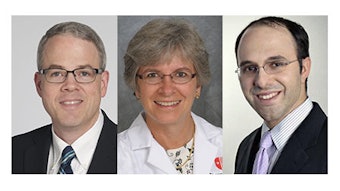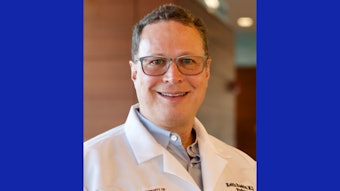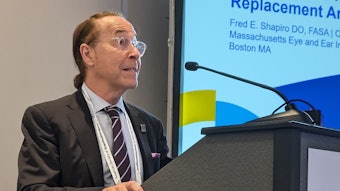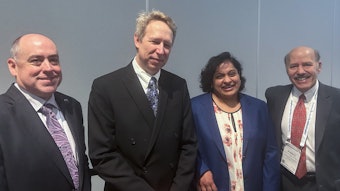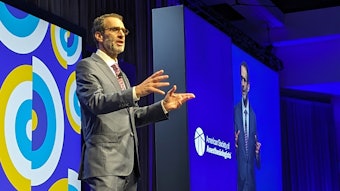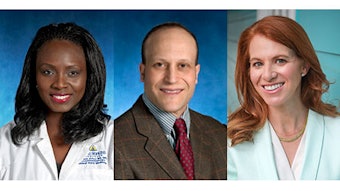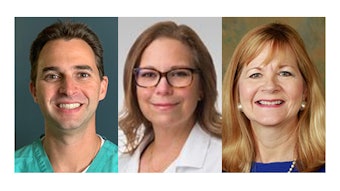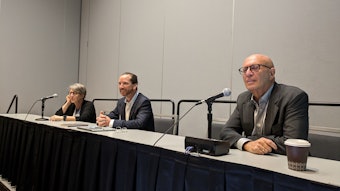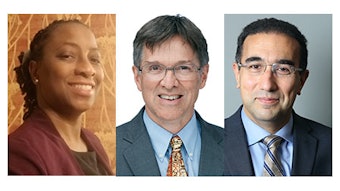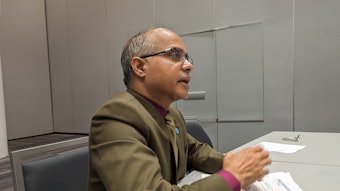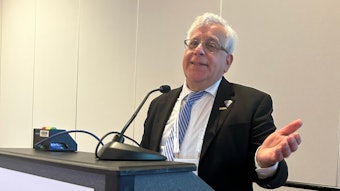Rethink and reframe
Looking inward and beyond for solutions to challenges in anesthesiology.
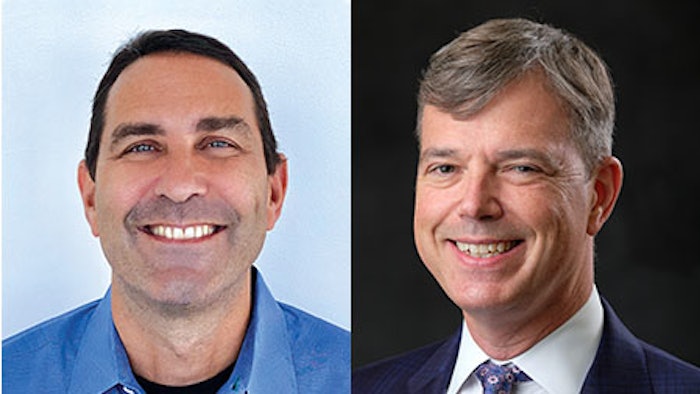
Workforce issues. The No Surprises Act. Medicare cuts. It might be easy to fall into a “Chicken Little” mindset that the sky is falling in anesthesiology. However, despite reimbursement, regulatory, and practice challenges, the specialty can rethink, reframe, and prepare for the issues at hand.
The 2023 aptly named session, “Not All Doom and Gloom! A Roadmap to Viability in Anesthesiology Practice,” outlined those challenges and offered a guide for navigating issues such as independent CRNA practice, inadequate/decreasing reimbursement, and regulatory barriers. Session panelist Zachary Deutch, MD, FASA, Associate Professor of Anesthesiology at the University of Florida College of Medicine in Jacksonville, said anesthesiology can ensure its viability in the foreseeable future and must explore solutions that include restructuring graduate medical education (GME) in anesthesiology and re-inventing clinical practice.
“As a profession, we need to continually educate the public and health care colleagues about the importance of our role in procedural care, ICU medicine, and pain therapy. There is no substitute for an anesthesiologist in these clinical areas, under any circumstances. We also need to aggressively lobby and advocate with governmental and legislative entities for the sake of our integrity as physicians, and for the protection of our patients,” Dr. Deutch said. “Re-working GME is an enormous topic in and of itself, but I think most would agree that anesthesiology residency does not prepare newly minted attending physicians for the harsh political, social, and economic realities of medical practice. So, something must be done there.”
Dr. Deutch, who was joined by fellow panelist Michael B. Simon, MD, MBA, FASA, said these issues aren’t new. They have historically been a problem for the specialty but are more acute now due to the dire state of finances in health care. The costs of doing business, most notably personnel costs, are skyrocketing, so those specialties that are hospital and non-referral based are under increased scrutiny.
“When anesthesiologists are perceived as excessively expensive loss-leaders in perioperative medicine, we encounter numerous problems,” Dr. Deutch said.
Additionally, session moderator Peter Wu, MD, MBA, FASA, an anesthesiologist in Tampa, Florida, said the aging of the general population and the cohort of anesthesiologists nearing retirement have created “a perfect storm of increased demand and reduced supply.” Employers are forced to increase compensation dramatically despite decreasing reimbursements, leading to cost shifting to facilities and patients, many of whom are already struggling financially.
“This economic pressure is making independent CRNA practice more attractive, but is it appropriate for every practice setting?” Dr. Wu asked. “This is arguably the biggest challenge the specialty has faced in modern times.”
Still, Drs. Wu and Deutch agree the solution rests with the anesthesiologist and his or her expertise.
“The specialty should leverage those skills that differentiate us from physician extenders, using our understanding of science and ability to evaluate the medical literature critically,” Dr. Wu said. “Anesthesiology needs to continue expanding our role to encompass the entire perioperative encounter to include preoperative optimization as well as postoperative care. We need to move beyond the operating room to provide our patients with the full benefit of our understanding of perioperative medicine. Our European colleagues are well integrated into critical care and emergency medicine. We have advanced skills in resuscitation that can be useful far outside the operating room.”
Retooling clinical and perioperative care may help, Dr. Deutch said. In particular, he believes in refocusing clinical perioperative care into the hands-on role of the anesthesiologist.
“We have gotten away from our roots somewhat with the overwhelming rise of medically directed practices, in which our contact with patients can be chaotic and too fleeting. In this setting, there may be days at a time where direct action is rare and all we do is ‘sign charts,’” Dr. Deutch said. “In my opinion, every group practice should incorporate some aspect of personally performed care, to demonstrate one-on-one our value and expertise to proceduralists who might now be interacting with CRNAs and CAAs 90%-plus of the time.”
According to Dr. Wu, training programs need to expand requirements in the areas of preoperative optimization, enhanced recovery after surgery, collaborative practice, and practice management. Ultimately, both agree that it takes self-reflection to move the needle in the right direction.
“Philosophically speaking, be realistic and soberly and bravely face the challenges confronting the profession, yourselves, and your practices. Don’t be afraid to look into the mirror in addition to around you when searching for the reasons behind successes and failures,” Dr. Deutch said.
It’s a sentiment echoed by Dr. Wu.
“If we limit ourselves to operating room anesthesia, we will continue to be commoditized,” Dr. Wu said. “We trained as physicians and should be fully engaged in patient care.”
